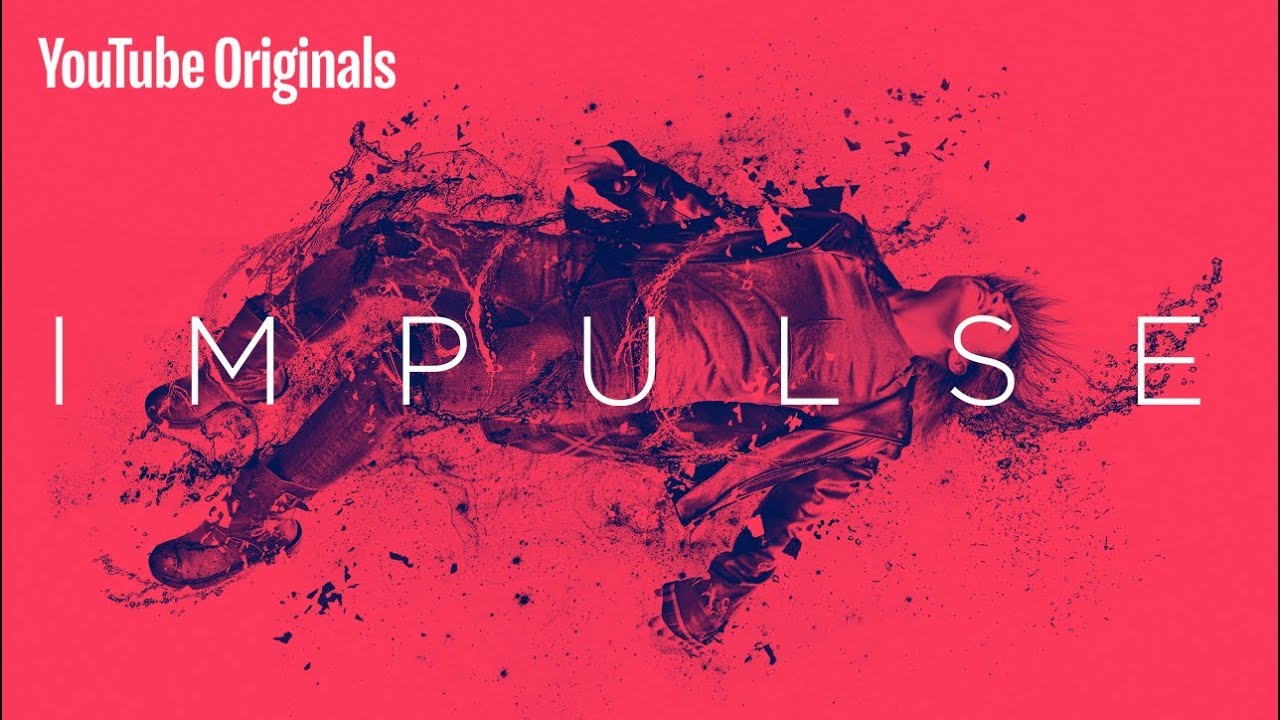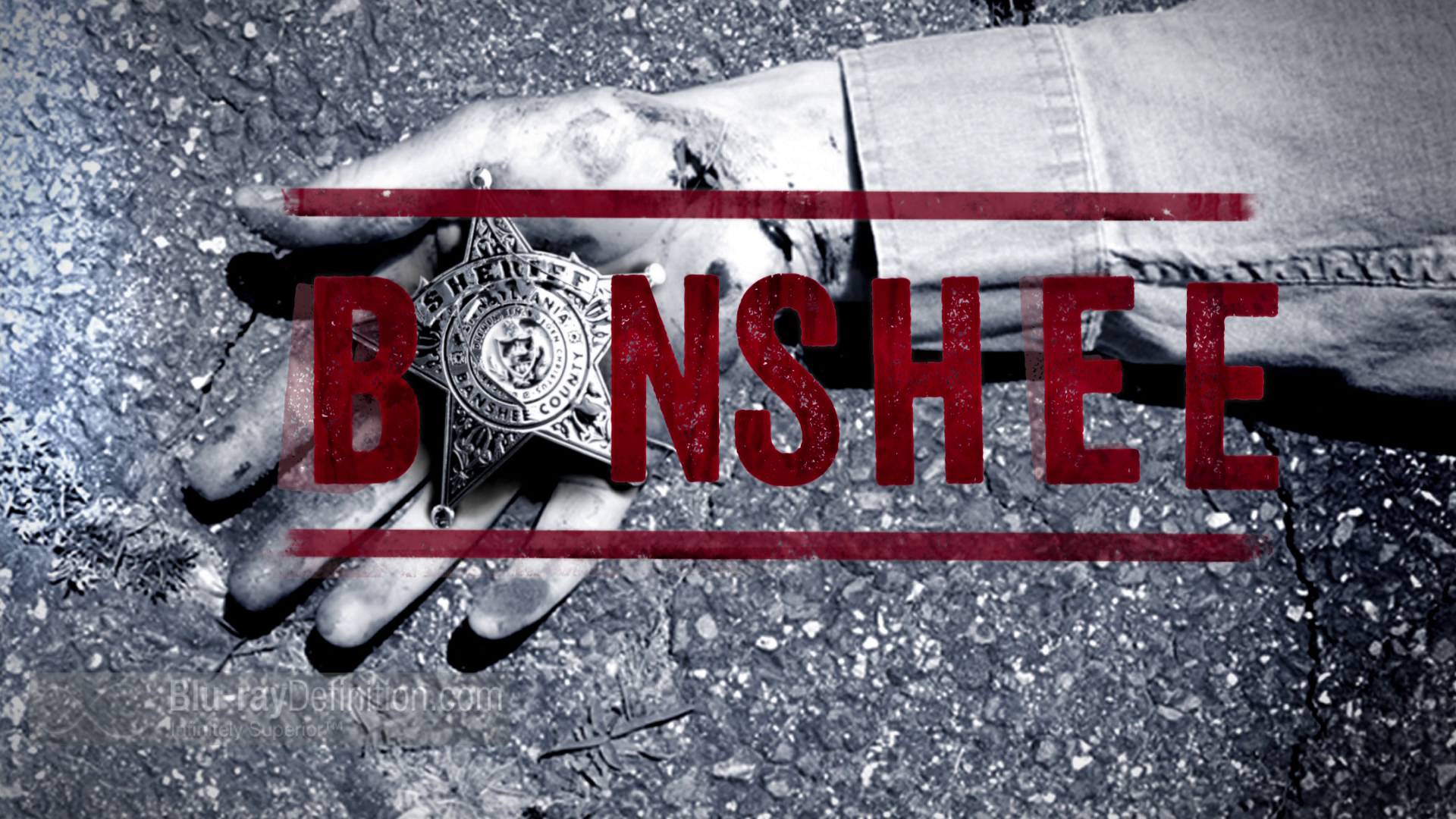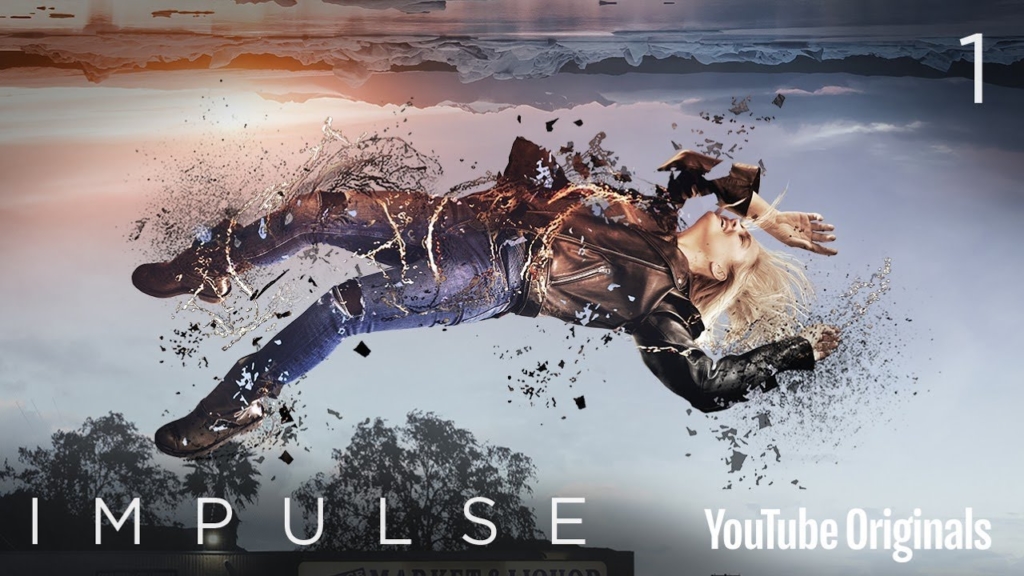
BY MIKE METTLER – NOVEMBER 26, 2019
“Some heroes wear beanies and headphones.” So goes one of the more intriguing taglines for the online series Impulse, now currently streaming its riveting second season via YouTube Originals (new episodes arrive every Wednesday). Said hero in question is Henrietta “Henry” Coles (Maddie Hasson), a young woman who actualizes her inherent ability to teleport following a traumatic sexual assault.
In Season 1, Henry navigates the aftermath of her sexual assault alongside learning how to deal with both the good and ill effects of her newfound abilities. Season 2 sees Henry continuing to confront the impact of her trauma as she seeks to control her teleportation powers with the help of friends and would-be mentors. It’s beyond gripping to watch Henry handle a most decidedly delicate balancing act as she struggles with becoming a more adept teleporter while concurrently keeping her abilities a secret from her loved ones out of safety concerns.
“I love that we tow the line and have found our own lane with Impulse in a crowded world with a lot of superhero things,” observes series creator and executive producer Doug Liman, the noted director behind such intriguing films as Jumper, The Bourne Identity, Edge of Tomorrow, and Mr. & Mrs. Smith. “We’re more about, ‘What’s the impact like on the people around the person with the superpower?’”
Impulse boasts an impressive creative team and cast, including the aforementioned Liman, executive producer and showrunner Lauren LeFranc (Agents of S.H.I.E.L.D., Chuck); Maddie Hasson (The Finder, Twisted) as Henry Coles; Missi Pyle (Galaxy Quest, Another Period) as her conflicted mother, Cleo Coles; and Callum Keith Rennie (Due South, Battlestar Galactica) as master teleporter Nikolai (to name but a few members of this top-shelf squad).
As Season 2 commenced streaming (with, as earlier noted, new eps appearing each Wednesday), I got on the line with Liman, Hasson, and Pyle following their triumphant appearances at the 2019 New York Comic Con to discuss Impulse’s core trauma and its ongoing rippling effects, some possible scientific tenets behind the teleportation phenomenon, and the show’s potential future(s).
Mike Mettler: I love the sensory overload I get from experiencing just how good Impulse looks and feels. Doug, as a filmmaker, do you feel you’ve been able to get the entire palette you had in mind as your vision for the show?
Doug Liman: Oh yeah. It’s so much better than my aspirations were — and my aspirations were high. But that’s what I love about the field that I’m in. When the right people come together, you create something that is more special than any of you could have done alone.
Everyone who’s joined the show has added to it, and it’s been the most extraordinary journey. I’ve been wanting to make Impulse ever since Jumper [Liman’s heartfelt 2008 film about a young teleporter and the ensuing consequences he faces while using that power]. So I had high aspirations for Impulse, and it’s way-exceeded them.
Mettler: So, if we say the act of being a jumper in Jumper is considered a “gift” while in Impulse it’s considered a “curse,” is that a fair assessment, to some degree?
Liman: Yeah, yeah! (Hasson chuckles quite heartily in the background)
Mettler: Sorry about that, Maddie — I don’t mean to say you’re a cursed person or the character of Henry is cursed, or anything like that.
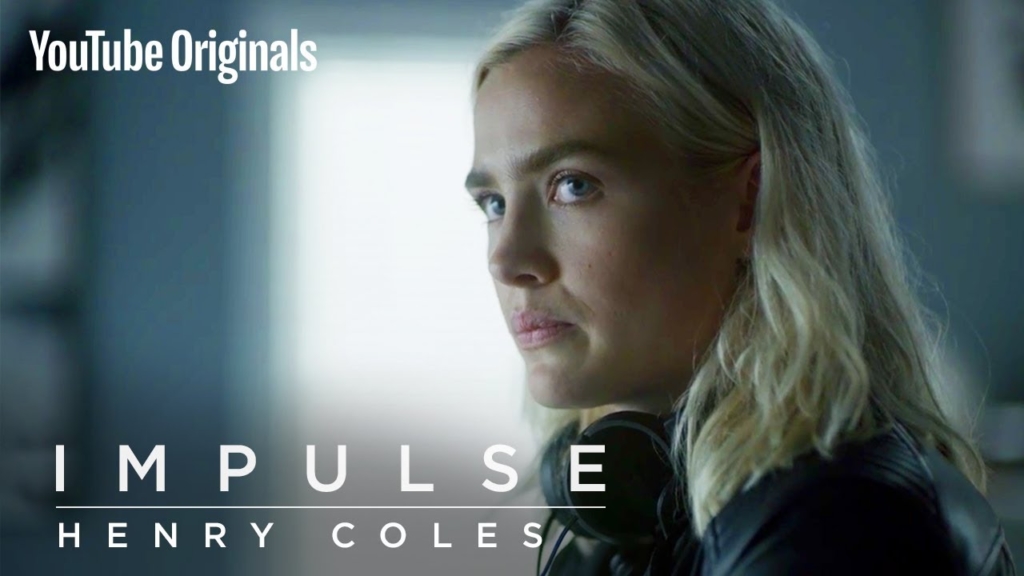
Maddie Hasson: No, that’s awesome. That’s a really accurate assessment, absolutely. It is a curse to Henry, and I think it’s something really clever that Doug did this time. She has a place where she can’t control her power, and the last place that she wants to be is the place that she continues to go back to — her room — as well as being in this town that she hates where this thing happened to her. She didn’t want to be there in the first place, and then she was assaulted. Her body keeps bringing her back to her bedroom, and she doesn’t know why. I think there’s something really clever behind the meaning behind all that.
Mettler: I agree. I was also gripped by the overall heightened tension of you racing the train at the end of Episode 10 in Season 1 to where you end up, flinging yourself across your room. The whole train sequence was exhilarating, and it must have been pretty fun to film it too. Was most of it shot in real time?
Hasson: Yeah, that was such a fun day. We actually went to Sri Lanka to shoot it, and that’s the real train that I was running beside. But I obviously didn’t jump in front of a real train!
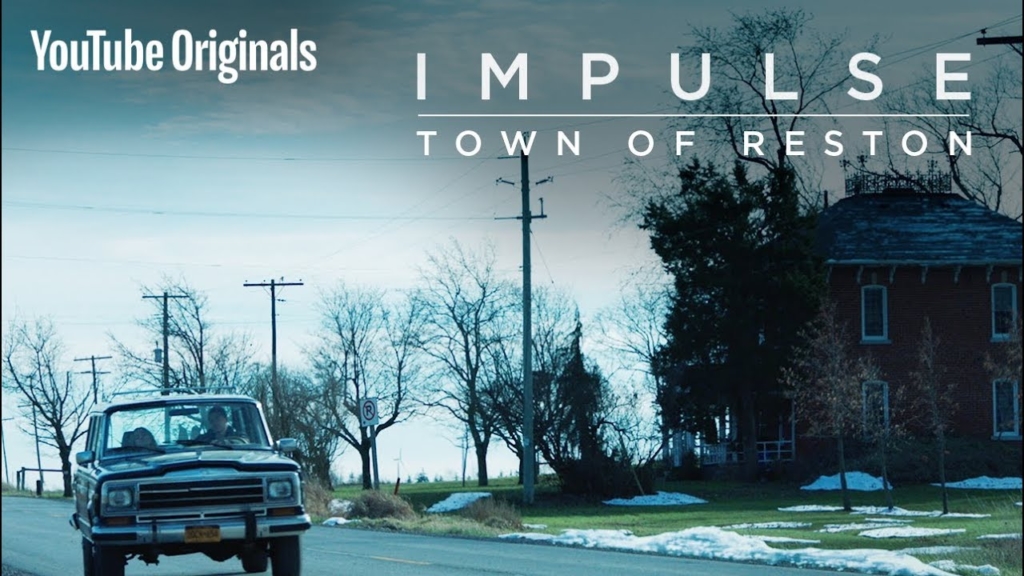
Mettler: Yeah, thankfully, or we wouldn’t be talking, so that’s a good thing. (Hasson laughs) Now, regarding the house in the show’s setting of fictional Reston, New York — I notice there’s this great big power line that runs right next to it, which has a very dramatic look to it. Does that have any effect on your powers, by the way? I believe there is some kind of scientific evidence related to people living near power lines.
Hasson: That’s such an interesting question! Um, I don’t know! Doug, what do you have to say about that?
Liman: I mean, it’s the kind of thing we’ll explore. And that’s why I’m really interested in doing this kind of thing on YouTube, because usually what you watch on YouTube is real. In this heightened world with superpowers, we’re approaching it from the point of view of, “How would it really happen?” So, I like that you’re picking up on the power lines. How do they interact? What effect would her teleportation have on the grid, and vice-versa. Again, I like thinking about those details, because usually, you get some good story out of it.
Mettler: I can see that. Maddie, during the scenes where you’re wearing your headphones, do you actually listen to the music that’s playing in the scene itself, do you choose your own music to listen to in those scenes, or is stuff that’s been suggested to you? How does that come about?
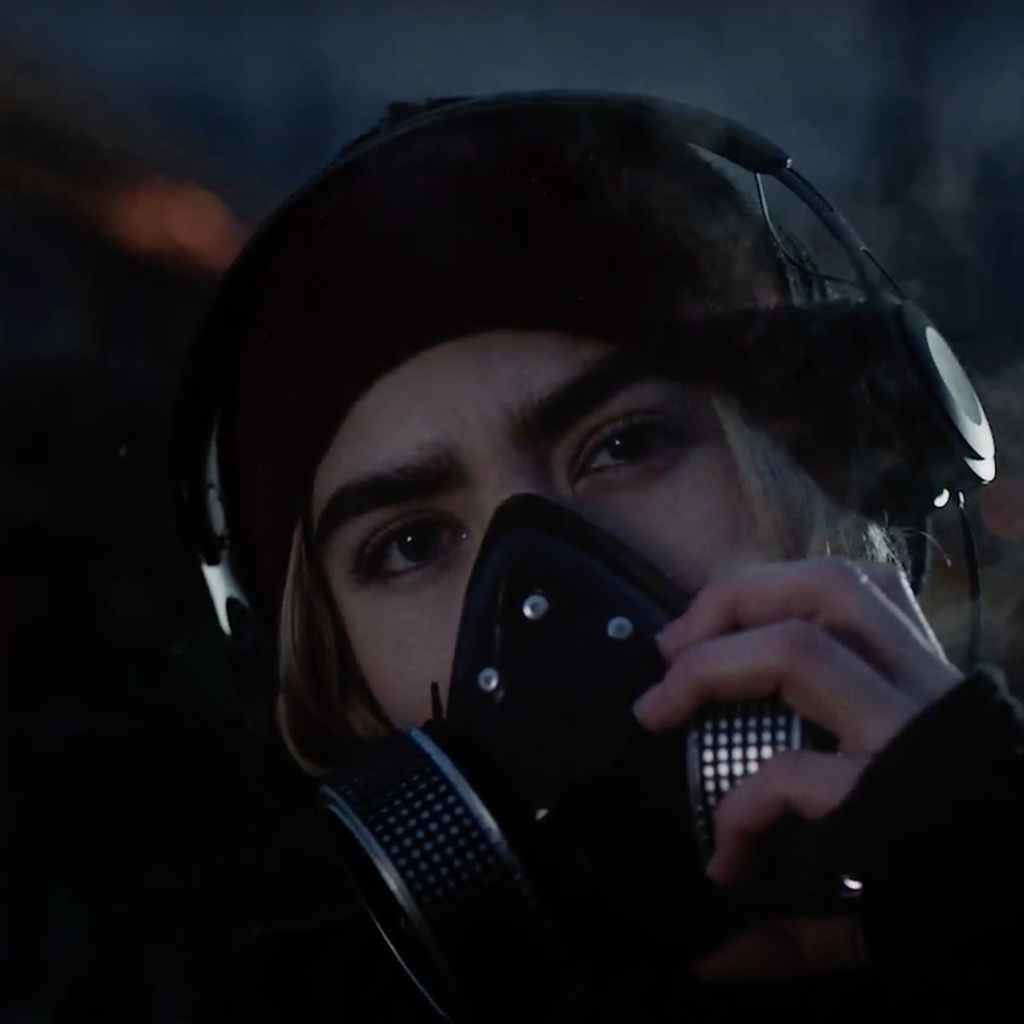
Hasson: I listen to the music myself. I actually posted my playlist from Season 1 — this whole big, great playlist with a lot of grunge and a lot of Hole on it, and other fun music like that. (MM chuckles)
Also, whenever [executive producer/showrunner] Lauren LeFranc writes the music into the scene, I’ll listen to the particular song to get the exact tone right.
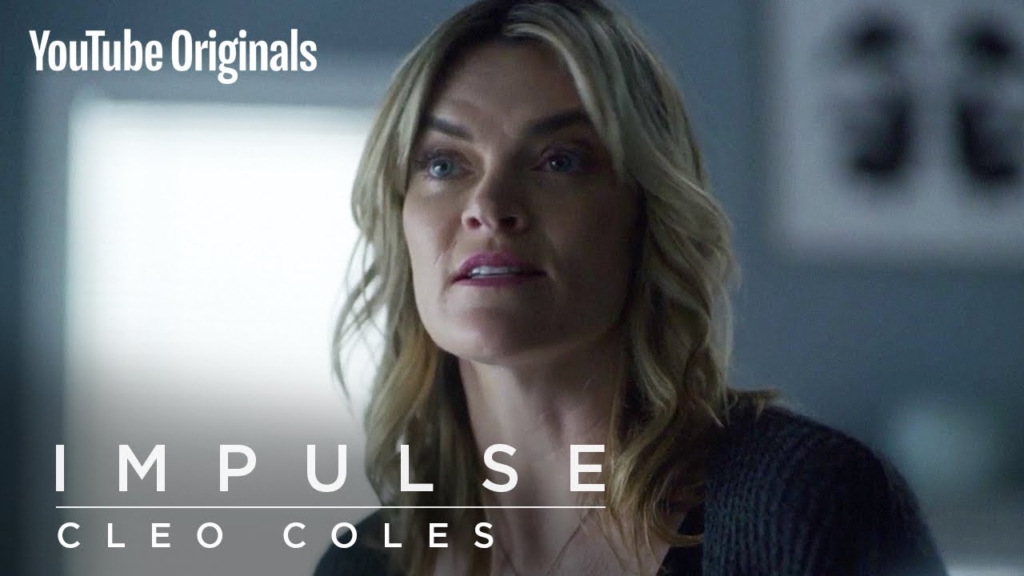
Mettler: I like that level of attention to detail. And I’m not forgetting the parent in the room, Missi. Are you literally missing at the end of that last Season 1 episode, that we know of? What are you allowed to say about where you actually are, for Season 2?
Missi Pyle: Oh, that’s a good question! I mean. . .
Liman (interjects): She’s back! (all chuckle) I think we can say that.
Mettler: Well, that’s good. I saw a lot of blood in the snow, so I was wondering. I had a concern.
Pyle: Yes, well, you’ll have to watch to see, but she’s (slight pause) present for something. There’s a shot, but . . . Doug, what can we say?
Liman: You’re part of Season 2 in a huge way! Otherwise, you wouldn’t be here doing press with us.
Pyle: I’m not a hologram, I’ll just say that.
Mettler: Well, that’s good to hear. You already have a little bit of history in another hero-driven universe: You were Hope on Heroes [a serial sci-fi drama that ran for four seasons on NBC from 2006-10] — which is a good name, and I don’t know if I should read into the name Cleo at all. But, that said, is there anything to read into your actual character name?
Pyle: My friend Gina Gershon has a black cat named Cleo that she wrote a book about [The Search of Cleo: How I Found My Pussy and Lost My Mind, published in 2012], but I don’t think that has anything to do with anything. That’s the only Cleo I know.
Mettler: So it’s not related to Miss Cleo, who had her own, uh, powers. (chuckles)
[Miss Cleo was a spokeswoman who appeared in many commercials/infomercials for a psychic pay-per-call service known as the Psychic Readers Network; she passed away in 2016.]
Pyle: Oh, Miss Cleo — that’s right! Well, maybe I, maybe she, is a little telepathic.
Mettler: Is there telepathic DNA involved? Do you have your own powers? Are we allowed, or not allowed, to say that?
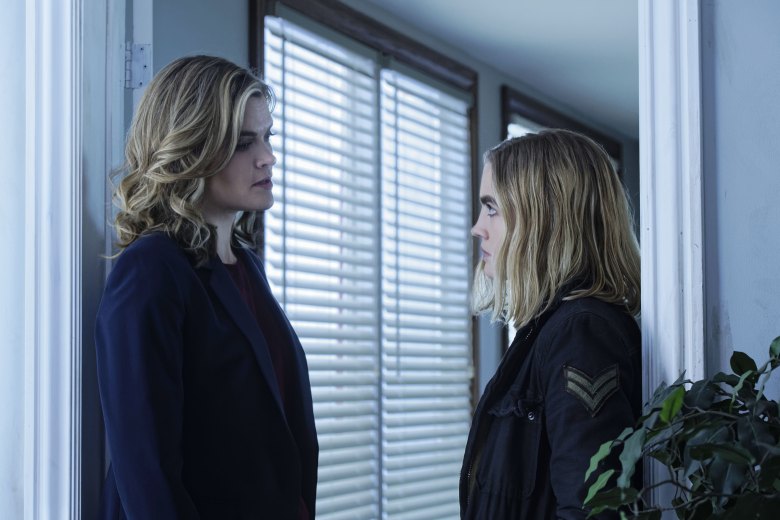
Pyle: At this point, I’m one of the only players in the dark about Henry’s powers. I still believe that she has epilepsy, and she’s kind of kept me in the dark. As a parent, she’s faced this trauma, and then you have this intruder in our house. And for me, I’m sort of blinded by what I’ve done wrong as a parent and I’m trying to be a better parent, but perhaps it’s a little too late.
Henry’s also working to harness her own power, but I know nothing about that, so I guess the answer is. . . I don’t know.
Liman: I love how, in these worlds, with so many people who have these superpowers, it’s like everything is just about that. But we have a really deep and rich world where Cleo has a whole huge storyline and Cleo has nothing to do with Henry’s superpowers, because she doesn’t even know about them.
I love that we tow the line and have found our own lane with Impulse, in a crowded world with a lot of superhero things. We’re more about, “What’s the impact like on the people around the person with the superpower?”
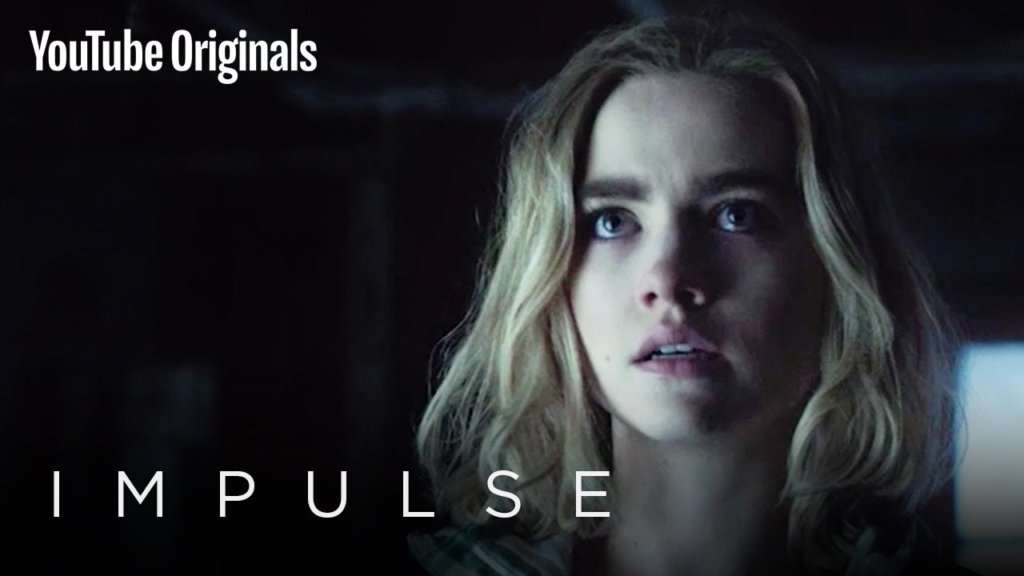
Mettler: Right — it’s not all about you, the protagonist. Sometimes, you only get that one viewpoint in a show like this. But those of use who’ve grown up reading science fiction and comic books, we know there’s a lot more depth to the character of the people who are built around the lead. In Impulse, you’re able to develop that, and I like that some of the episodes get to breathe. You don’t have to follow the A story beat all of the time.
Liman: Yeah, because this story takes place in a real world long before Henry got her superpowers, and the world didn’t start the day she got her superpowers. There was a lot of hurt and pain between Cleo and Henry, and that didn’t go away because she could just suddenly teleport.
I like that we’re exploring some really serious issues that are obviously at the heart of this. She teleports during a sexual assault [as explored in depth in Season 1], so the superpower that’s at the heart of Impulse is forever linked to a really serious trauma for Henry.
Mettler: I also like how you dig deep into both sides of the trauma, because there’s more than one person involved. In Season 2, we have a scene where somebody discusses their experience from the other side of the coin. We get to see all pieces of the puzzle here.
Hasson: There certainly are some rippling consequences, just from that one moment.
Liman: As there are in real life, when there are assaults. Usually, there’s trauma going both ways. A lot of times, it does have a rippling effect on everybody involved in the event.
I feel like genre and superpowers, at least for me as a filmmaker, enable me to go deeper in terms of things that might otherwise be uncomfortable to explore, in the same way that a Mr. & Mrs. Smith [a 2005 film starring Angelina Jolie and Brad Pitt in the married-assassins title roles] do it, where there are some really serious marital fidelity issues. But issue them some automatic weapons, and then we can have some “fun” in looking at it, versus it getting so heavy that it’s sort of off-putting.
I mean, I hate to say how much fun Impulse is to watch, but there is this really serious trauma at the heart of the show — and it is fun to watch.
Mettler: Right. So we’ll have to call it The Liman Identity, so that you’re your own Bourne, in a manner of speaking.
Liman: (chuckles) Yes, yes!
Mettler: I also appreciate that you do a lot of shooting in Toronto and Hamilton [in Ontario]. I like seeing a lot of real life outdoor scenery.
Liman: Yes, and we’re set in upstate New York, so that Canadian scenery fits the area.
Hasson: Yeah, and that’s where the house is — in Cayuga.
Mettler: I have a theory about where the show is ultimately heading. My guess is either a) Missi wakes up next to Bob Newhart (Pyle laughs), or b) Henry is in a snow globe. Am I close on either of those guesses? (chuckles)
Hasson: Why are you putting me in a snow globe? Everybody is always putting me in with a snow globe . . .
Mettler: That was actually a St. Elsewhere reference on my part, but maybe that’s a deeper cut. (chuckles again) Anyhow, my last question is, do you see Impulse going an endless number of seasons and do you have an endgame involved, or is it going to play out as long as you feel it can go?
Liman: It’s a Jumper reference.
Liman: I’ve been wanting to make Impulse for so many years since Jumper, so I’ve just been dreaming up ideas, storylines, and really cool things that you can do, so I’m just getting going. And I’m really hoping that YouTube feels the same way.

